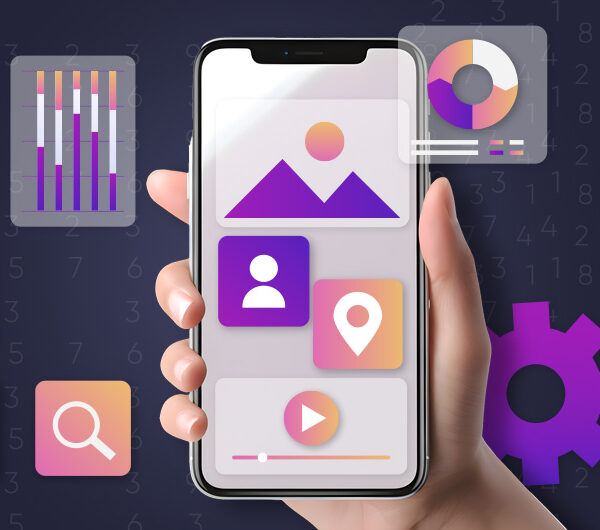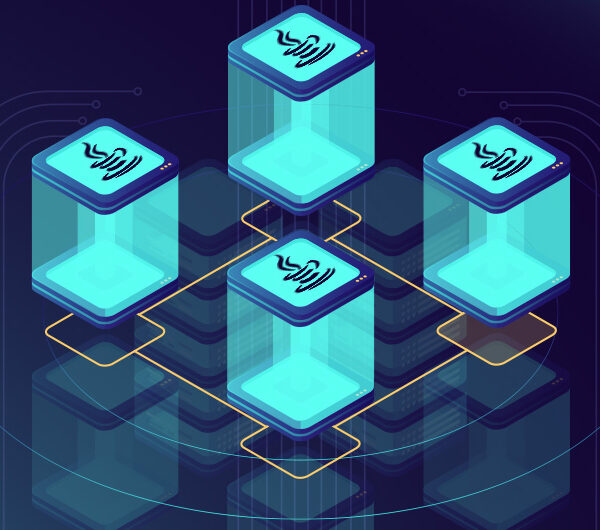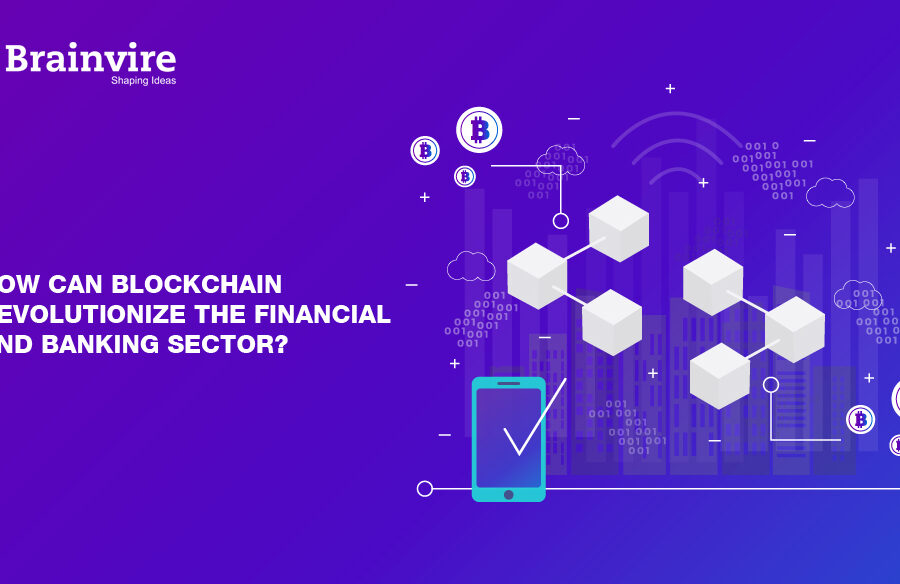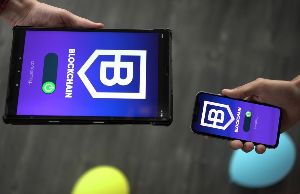Starting with the nexus of innovation, we explore the ever-evolving field of blockchain technology combined with Android app development. This blog post explains the mutually beneficial relationship between these two innovative fields and shows how their combination improves security, transparency, and efficiency while completely changing the mobile application market.
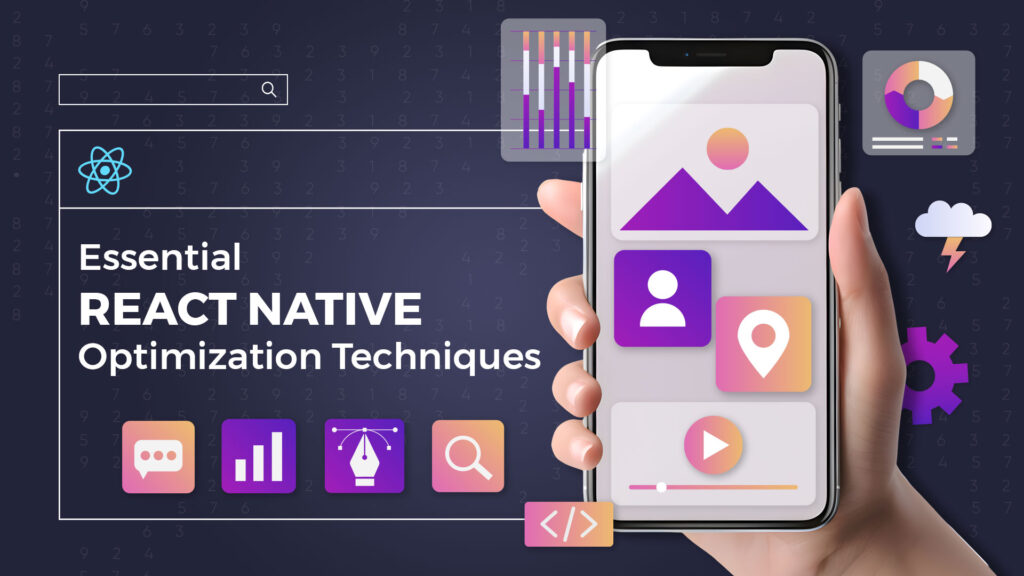
Blockchain for Mobile App Development
Blockchain technology is a game-changer in the field of mobile app development because it provides previously unheard-of levels of efficiency, security, and transparency.
- Security Advancements:
The decentralized and encrypted properties of blockchain improve the security of mobile apps by protecting critical user information and transactions. This fosters user trust, which is essential for the uptake of apps.
- Transparent Transactions:
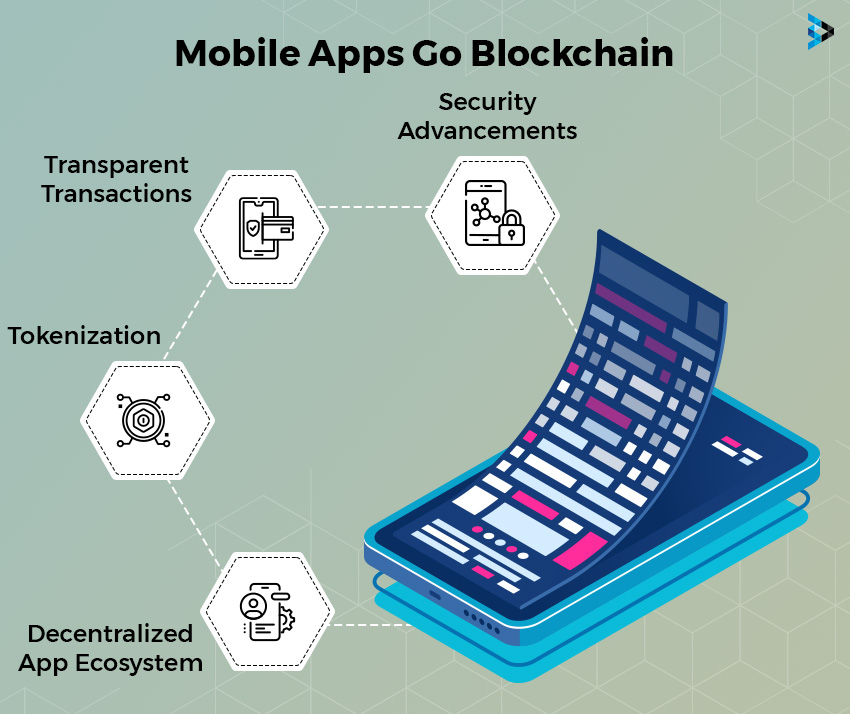
By doing away with middlemen and cutting expenses, smart contracts make transactions transparent and impervious to manipulation. Users feel more accountable and confident as a result of this transparency.
- Decentralized App Ecosystem:
By enabling the development of DApps, blockchain upends conventional centralized paradigms. This decentralization gives users more control over their information while simultaneously guaranteeing data integrity.
- Tokenization:
By integrating blockchain, mobile app monetization methods can be revolutionized through the use of in-app currencies and tokenized assets. Developers can investigate fresh sources of income and methods for interacting with users.
What are the Key Considerations to Develop a Blockchain Mobile Application?
When creating a blockchain mobile application, a number of important variables must be carefully taken into account, including problem-solving techniques, target audience analysis, platform selection, security priorities, user experience optimization, regulatory compliance, and staffing the project with qualified individuals.

Issue & Value Declaration
The first step for a successful blockchain app development is defining the issue it seeks to address and the benefits it offers consumers. Finding a true market need guarantees that the application tackles practical issues, raising the likelihood of acceptance and success.
Intended Audience
In order to customize the application to satisfy certain user needs, it is imperative to define the target audience. Developing a more user-centric and efficient blockchain mobile application requires an understanding of the demographics, preferences and pain points of the target audience.
Platform Selection
During the development process, selecting the appropriate platform is crucial. When choosing between iOS, Android, or a cross-platform solution, factors including the application’s nature, market trends, and target audience should be taken into account. Every platform has distinct qualities that influence user reach and development.
Security
Since blockchain apps handle sensitive data and transactions, security is of utmost importance. Encryption, secure authentication, and following best practices are just a few of the strong security measures that must be put in place to protect user data and preserve the blockchain network’s integrity.
Scalability
The blockchain mobile application’s scalability becomes increasingly important as the user base expands. By considering scalability throughout architectural design, the application may manage higher traffic and transaction volumes without experiencing performance issues. Scalability is essential to the application’s long-term viability and sustainability.
User Experience
Retaining and engaging users requires a smooth and simple user experience. A positive user experience increases the likelihood that the application will be widely adopted. This can be achieved by giving priority to user interface design, responsiveness, and overall usability.
Rules and Adherence
Respecting legal standards is crucial, particularly in the ever-changing world of blockchain technology. Maintaining adherence to regulatory frameworks and industry standards serves to reduce potential risks and cultivate confidence among stakeholders and users.
Development Team
A blockchain mobile application’s development team’s proficiency and unity are critical components of its success. Putting together a knowledgeable and experienced team with familiarity with blockchain technology guarantees a more seamless development process, lowering the possibility of delays and technical difficulties.

Want to Build Your Android Apps Leveraging Blockchain Technology?
Step 1: Ideas Formalization
Having a clear idea of your goals is the first step in starting the blockchain driven android app development process. Specify your app’s goal, features, and intended user base. Consider the ways in which blockchain technology improves application security, transparency, and trust. This initial phase of development sets the overall framework for the project.
Step 2: Analyzing competitors in the Market
Conducting extensive market research is essential if you want to stand out in the crowded field. Determine the differences in the marketet, evaluate the advantages and disadvantages of the current blockchain applications. This stage guarantees that your system meets real customerer needs and offers something special for the market.
Step 3: Technology OptionsTest
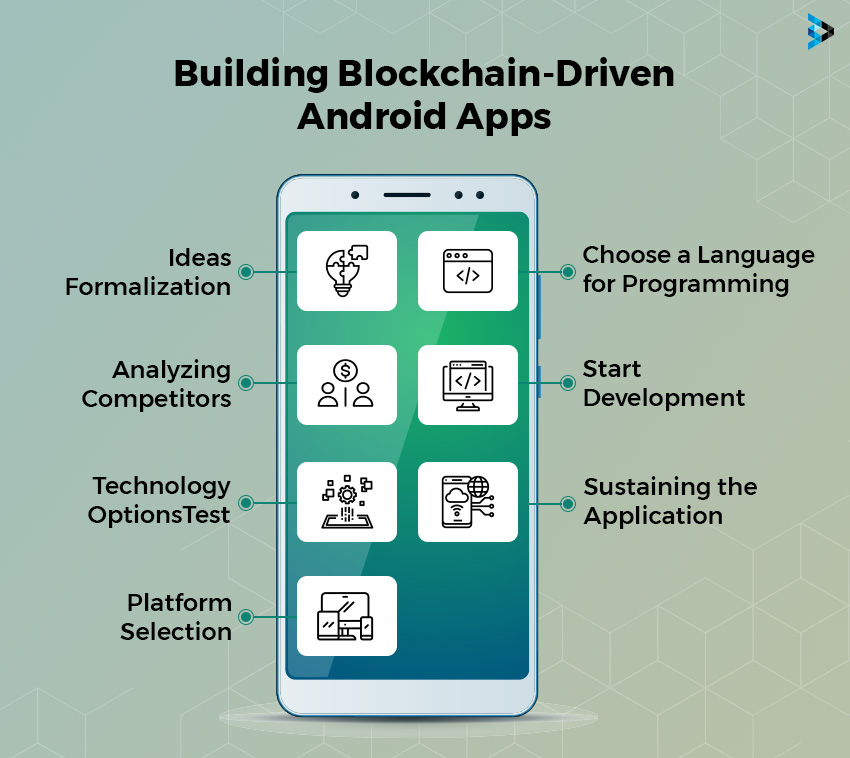
Blockchain technology offers multiple platforms, each with unique characteristics. Explore technical features, including scalability, smart contract capabilities, and design process. Understanding these changes will help you align your application needs with the best blockchain platform.
Step 4: Platform Selection
Choosing the right blockchain platform is very important. Note these important steps when choosing a blockchain platform.
Ethereum is a well-known platform for smart contracts.
Ripple: Promotes more global connectivity.
For larger systems, the best material is a leather blend.
R3 Corda: Specifically designed for low-cost use.
Look into the features of these platforms and how they fit your specific business needs, and take your time.
Step 5: Choosing a Language for Programming
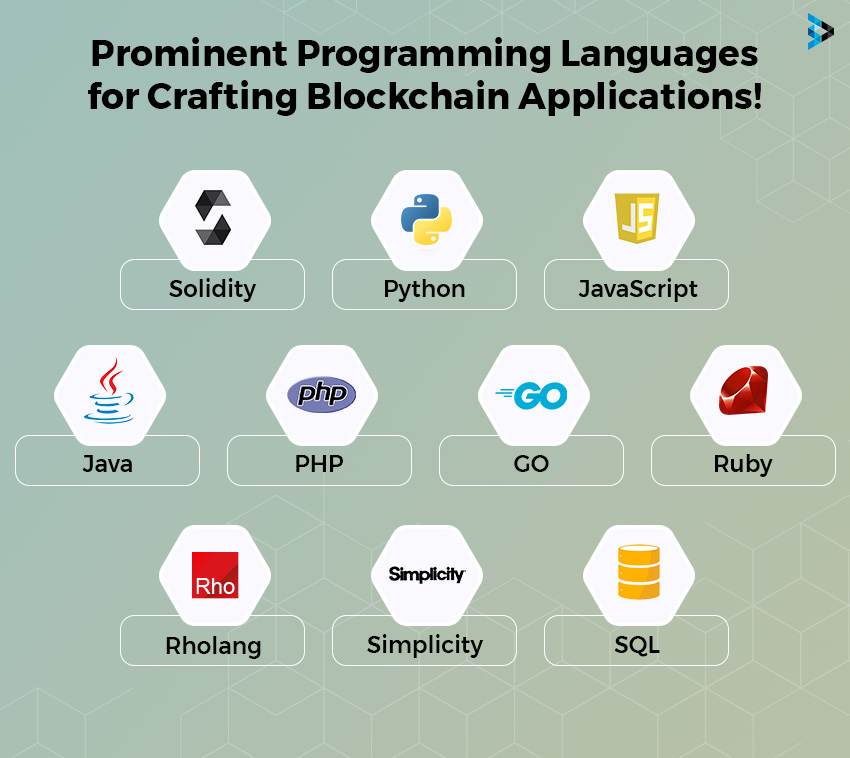
For high-performance android app development, choosing the right programming language is essential. Languages ​​like Kotlin (R3 Corda), Java (Ripple, Hyperledger fabric), or solidity (Ethereum) may be appropriate, depending on your chosen blockchain platform. For a smooth integration, align your technology stack with the selected blockchain platform.
Step 6: Start Development
Now that a solid base has been established, the development stage can begin. Use the platform-specific tools and programming languages you choice begin coding the functions that were specified in the formalization phase. The system satisfies the required criteria thanks to frequent testing and iterations.
Step 7: Implementing and Sustaining the Application
Once development is complete, release your Android app with blockchain functionality to the appropriate stores. Create a thorough maintenance schedule as well in order to handle any problems that may arise after deployment, apply upgrades, and guarantee continued compatibility with the developing blockchain ecosystem.

Use of Blockchain Integration in Different types of Apps
Blockchain integration has revolutionized the world of apps. It has increases security, efficiency along with transparency in the apps. It also automates the whole process in which the app works. Here are few examples of different types of apps where block chain integration is helping:
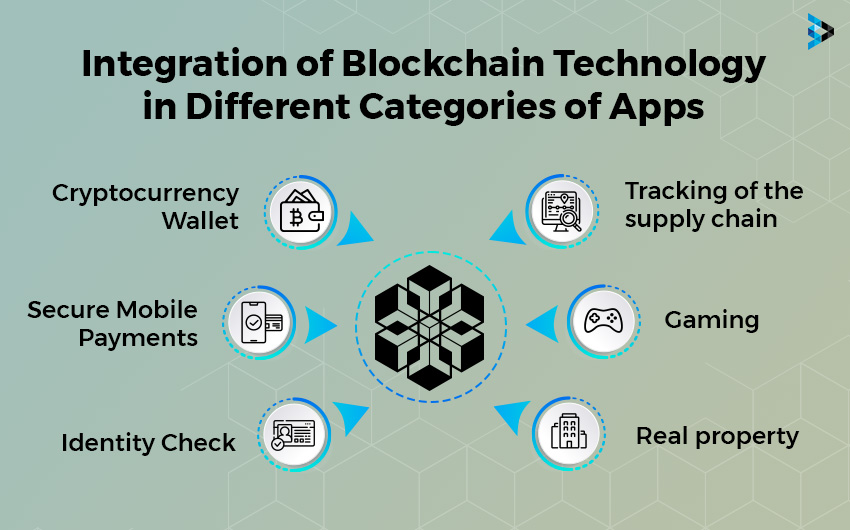
Cryptocurrency Wallet
The Cash App blockchain integration with technology and finance demonstrates creativity and user-centered design, enhancing the wallets’ usability, security, and accessibility for cryptocurrencies in the digital economy.
- Cryptocurrency wallets place a high priority on the protection of private keys, which boosts user trust in transactions and reduces the possibility of unwanted access. This guarantees the safe storage and administration of digital assets.
- Support for several Tokens and Cryptocurrencies: Cryptocurrencies provide flexibility by enabling users to manage and diversify their digital assets on a single platform with wallets that support several tokens and cryptocurrencies.
- Decentralized Exchanges (Dexs) Integration: Wallets that embrace the decentralized philosophy integrate with decentralized exchanges (Dexs). Users now have more control over their transactions and investments thanks to the direct and secure peer-to-peer trading made possible by this.

- Users gain from the easy-to-use in-app purchase features that come with utilizing cryptocurrency. This expedited procedure improves the user experience in general and encourages the usage of digital currency for routine transactions.
- Biometric Authentication for More Security: To improve security and fend off potential attacks, these wallets use biometric authentication, such as fingerprint or facial recognition.
Secure Mobile Payments
Blockchain app development services are essential when it comes to safe mobile payments. Through the use of decentralized technologies, these services enable:
- Elimination of Transaction Fees and Intermediaries: Using blockchain technology promotes direct, economical transactions by reducing the need for middlemen.
- Faster and More Transparent Payment Processing: The decentralized structure of blockchain ensures that every transaction is transparent and speeds up payment processing.
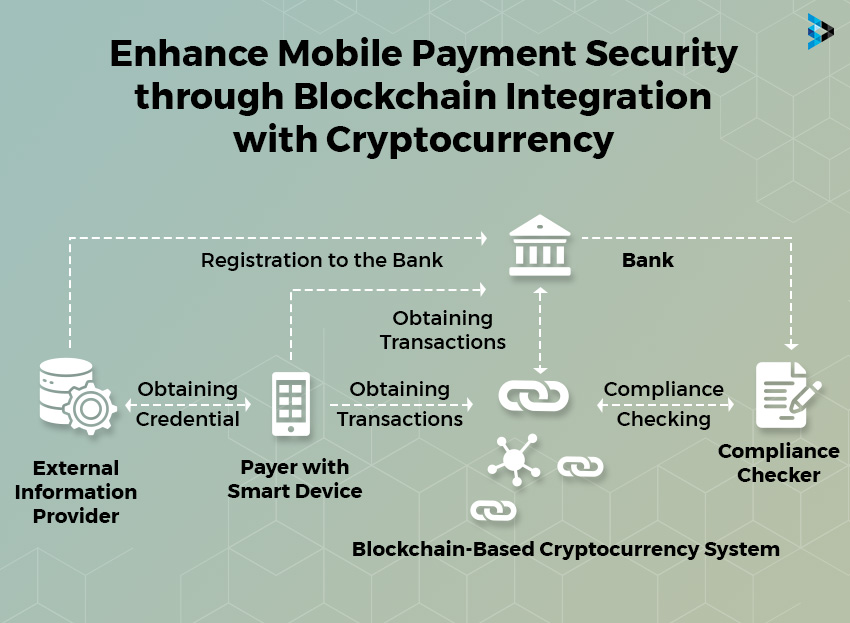
- Decreased danger of Fraud and Chargebacks: Blockchain applications of powerful cryptographic protocols greatly reduce fraud and chargebacks.
- Digital Information and Service Micropayments Facility: Blockchain application development possible for micropayments facility, digital information and services the reach transformation.
- Interaction with verification and reward systems: Blockchain application services can be easily integrated with verification systems and reward systems to enhance users and provide better user experience.
Identity Check
- Developers can leverage real government identity solutions around the blockchain application enterprise to empower customers. Certificates of ownership empower users and build trust in online transactions.
- Secure identity credential excha.l./longe: Owner uses the latest technology from the blockchain application to securely share ident credentials with other organizations. Ensures seamless, reliable communication safeguarding user ​​privacy and data integrity to protect the borders.
- Eliminate centralized identity providers: Replace centralized identity providers with blockchain application factories. Embrace decentralization to increase reliance on lean, centrally managed systems to increase privacy, security and productivity.
- Effective KYC/AML Procedures: Implement enhance KYC/AML procedures for blockchain users’ enterprise quality. Identify yourself more quickly and easily, improve compliance and support security requirements.
- Decreased Identity Theft and Fraud Risk: By implementing powerful solutions for blockchain app projects, you can reduce the risk of identity theft and fraud. Ensure a safe digital environment by using decentralized, tamper-resistant devices.
Healthcare Data Management

It is essential in the field of healthcare to provide secure, unchangeable patient record storage top priority. This protects the confidentiality and integrity of sensitive medical information. Encouraging patients to access their medical records gives them a sense of autonomy and control over their health information.
Moreover, the use of robust data management systems facilitates enhanced provider productivity and effective data exchange. Moreover, easily available and well-structured data facilitates efficient clinical trials and research endeavors, supporting the rapid advancement of medical science. Prioritizing enhanced security and privacy, the system maintains accurate medical records and enhances user confidence.
Tracking of the supply chain
A key player in logistics, real-time tracking makes it simple to follow materials and shipments from point of origin to destination. Better transparency is ensured and accountability in intricate supply networks is reinforced. Notably, by lowering the possibility of fraud and counterfeiting, the strategy fosters a secure ecosystem.
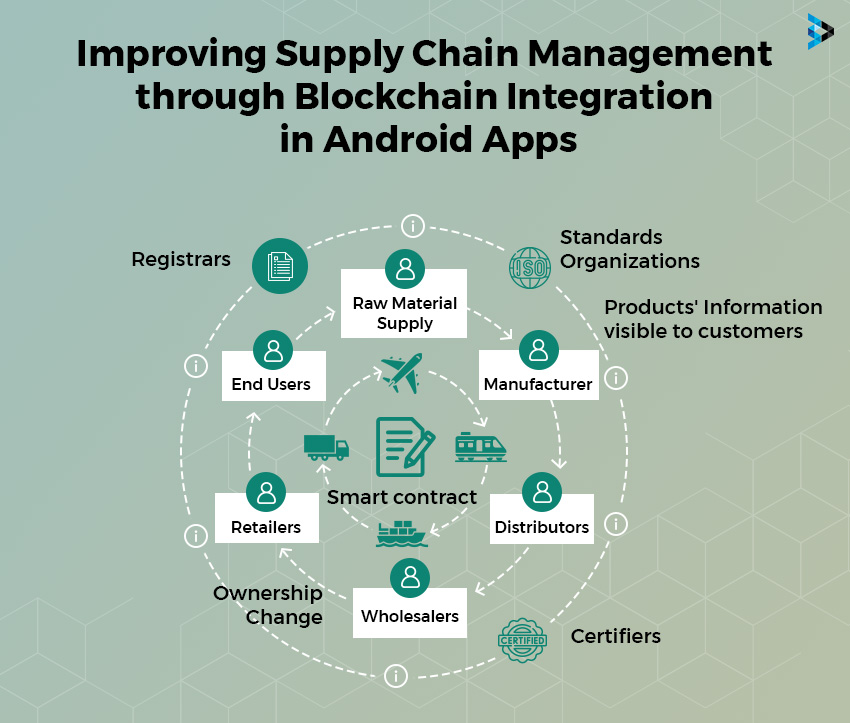
Furthermore, the ensuing tactics lead to enhanced logistics operations optimization effectiveness. Beyond its usefulness, these materials serve as the cornerstone and ethical foundation for sustainability tracking. As a result, supply chains are redesigned through the application of cutting-edge technology, strengthening their sustainability and ethical relevance.
Gaming
A blockchain app development company is a key player in transforming the gaming industry.
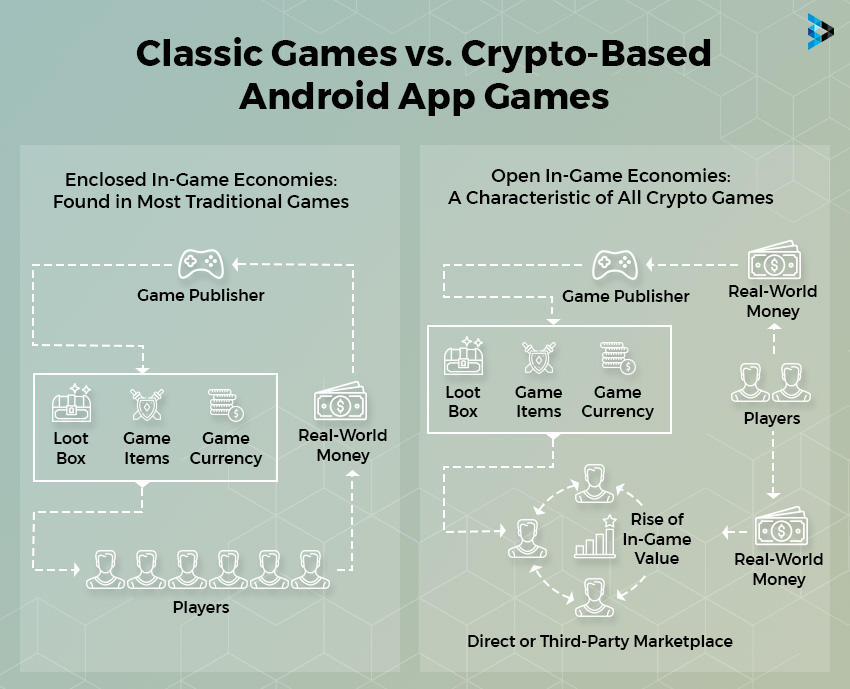
- Security and transparency: Blockchain guarantees security and transactions, eliminating fraud when comes digital game assets. As a result, they build trust and increase trust in businesses.
- User-friendly marketetplace: Improve gaming experience by providing customers with a real sense of usage. This animation allows for readability and confidence in wearing the game.
- Tokenized Rewards: Creates a dynamic environment by adding tokenized rewards to games. Players are awardens tokens on their participation, increasing their engagement transparently and achievement.
- Cross-platform experiences: By enabling move-platform games, blockchain increases accessibility and engagement of target audiences.
- Integrity and Community Consensus: Community consensus is enhanced by the use of secure, open blockchain technology. Consequently, this enhances the general game experience and investor loyalty.
Real Property
Real estate is being transformed by embracing blockchain and tokenization, guaranteeing a future characterized by effectiveness, transparency, and decentralized owner loyalty.
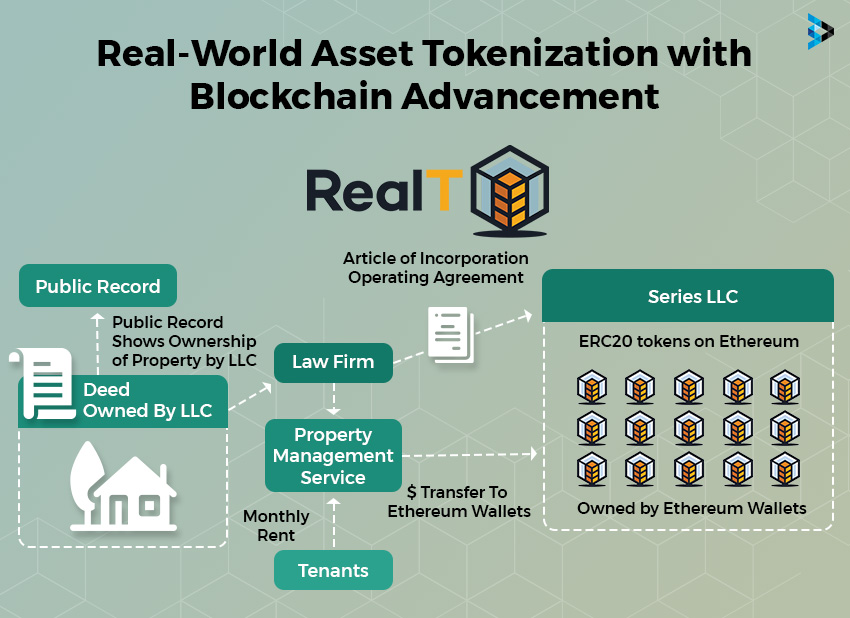
- Real estate assets are tokenized for fractional ownership through the process of tokenization. It allows the ownership to be shared by several investors.
- Streamlined communications: More faster and secure real estate deals. The removal of middlemen and litigation costs.
- Transparent Property Management: A greater degree of openness in the administration of properties. Streamlined procedures to increase effectiveness.
- Blockchain-based decentralized land title registry for decentralized ownership verification. Effective confirmation of property title.
Challenges in Integrating Blockchain into App Development
App developers find blockchain technology appealing because it provides security and transparency. Scalability is a problem, though, because traditional networks can’t manage large amounts of transactions. Developers need to investigate novel approaches like layer-two scaling and sharding to increase scalability.
Bridging the UX Gap
The creation of blockchain apps has a major challenge in the form of the UX gap, since complicated and perplexing user interfaces prevent mass adoption. A blockchain wallet app that caters to both new and seasoned users must have user-friendly interfaces that streamline blockchain interactions.
Fortress Under Siege
Despite being decentralized, blockchain is not impervious to security threats. Developing a blockchain wallet app necessitates a strong protection against potential dangers such as phishing, hacking, and weaknesses in smart contracts. To guarantee the fortress stays unbreakable, strong encryption, multi-signature authentication, and ongoing security assessments must be used.
For app developers, the constantly changing regulatory environment surrounding blockchain presents a significant obstacle. Adherence to local, national, and international laws is essential to prevent legal issues. Long-term viability and user confidence are ensured by keeping up with regulatory changes and incorporating flexible frameworks into the blockchain wallet software.
Finding the Blockchain Sherpa
The difficulty of developing apps is further increased by the lack of blockchain expertise. The need to attract and retain talent increases as the demand for qualified experts surpasses supply. Building a cooperative community and implementing comprehensive training programs can aid in closing the knowledge gap and creating a long-lasting blockchain development environment.
Counting the Cost of Innovation
There is a cost associated with innovation, and blockchain’s resource-intensiveness is one such one. It is essential to strike a balance between the advantages of decentralization and the demands on resources and the environment. To ensure sustainable and ethical blockchain app development, developers must investigate energy-efficient consensus processes and optimize resource utilization.
Breaking Down the Walls
One of the ongoing challenges in the heterogeneous blockchain ecosystem is interoperability. Blockchain wallet applications frequently have to communicate with several blockchain networks and protocols in a smooth manner. These interoperability obstacles can be removed by standardizing protocols and encouraging cooperation throughout blockchain communities, resulting in a more integrated and effective ecosystem.
Cost Factors in Blockchain App Development
Because blockchain development is specialist, adding blockchain technology to the process of developing mobile apps significantly affects overall cost. Prices vary based on how complicated the program is and which particular blockchain functionalities are required for integration.
| COMPLEXITY LEVEL OF APP | RANGE OF COST | FACTORS AFFECTING COST | ADDITIONAL NOTES |
| Apps with a Simple Complexity | $30,000 – $50,000 | Basic blockchain integration and transaction recording | Ideal for applications with few blockchain features |
| Apps with an Intermediate Complexity | $50,000 – $100,000 | Smart contract integration and cutting-edge blockchain functionality | Perfect for applications that need more intricate blockchain solutions |
| Apps with High Complexity | $100,000 – $200,000 and above | High complexity, extensive custom blockchain development | For extremely complex apps with unique blockchain requirements |
Conclusion
A revolutionary synergy that improves security, transparency, and decentralization is represented by the combination of blockchain integration and Android app development. This potent mix creates new opportunities for user confidence, data integrity, and safe transactions. The adoption of blockchain technology in Android app development is poised to transform the market and offer customers never-before-seen levels of security and confidence, as the demand for dependable and durable mobile applications grows.
Read More: Feel the Power of Robust Security with Blockchain and Cloud
FAQs
Blockchain integration guarantees security, transparency, and unchangeable records for Android apps that deal with finance, supply chain management, voting, and decentralized applications.
Popular options for Android app development are Ethereum and Binance Smart Chain because of their established user bases, developer-friendly environments, and smart contract capabilities.
Programming skills in languages like Java and Kotlin, familiarity with blockchain principles, and access to tools like Solidity for creating smart contracts and Android Studio for creating apps are necessary to create blockchain-driven Android applications.
Use strong encryption, secure coding techniques, frequent code audits, and best practices for smart contract development to keep your blockchain-powered Android app safe from attacks and vulnerabilities.
A seamless user experience, informing users of the advantages of blockchain technology, guaranteeing scalability, and resolving privacy and data ownership concerns are important factors to take into account for user adoption.
In order to negotiate legal frameworks for cryptocurrencies and decentralized applications, regulatory considerations for blockchain apps include compliance with data protection laws, financial regulations, and knowledge of jurisdiction-specific policies.
Non-fungible tokens (NFTs), improved blockchain interoperability, growing integration with decentralized finance (DeFi), and the development of environmentally friendly consensus processes are some potential future developments in blockchain-driven Android app development.Â

